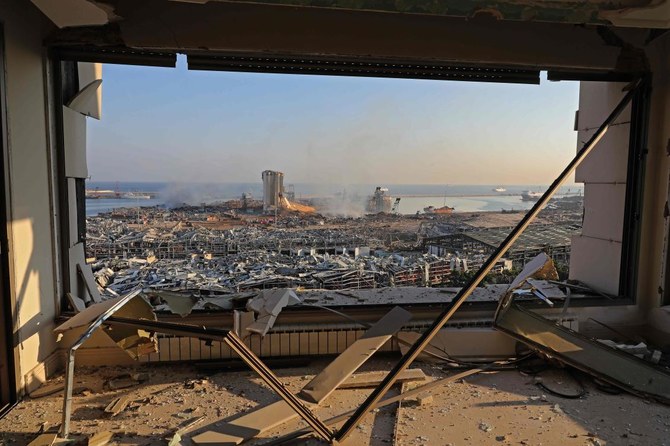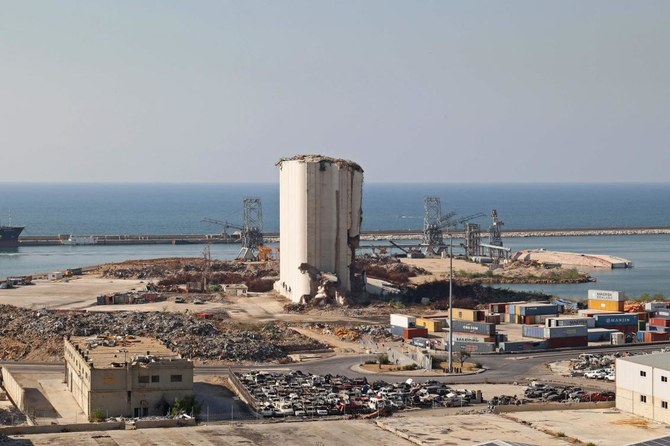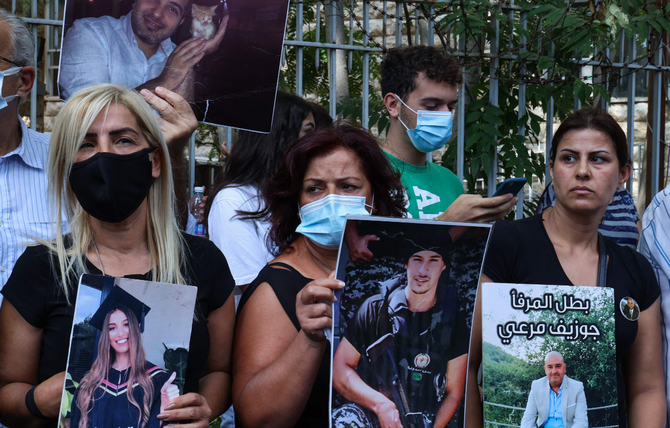BEIRUT: The International Support Group for Lebanon (ISG) has voiced its dismay over delays in the formation of a government in the crisis-racked country and called on Lebanese authorities to implement urgent reforms.
In a statement on Wednesday directed at Lebanon’s leaders, the group warned that as the political stalemate in the country drags on, “the social and economic crisis is getting worse.”
The ISG called on Hassan Diab’s caretaker government to “fully implement its immediate responsibilities,” adding that the “overriding need is for Lebanon’s political leaders to agree to form a government with the capacity and will to implement necessary reforms without further delay.”
Pragmatic legislative steps are needed to alleviate the “economic stress faced by Lebanese families and businesses,” it said.
The ISG was launched in 2013, and includes the UN, along with China, France, Germany, Italy, Russia, Britain and the US, the EU and the Arab League.
In its statement, the group welcomed France’s plan to hold an international conference in support of the Lebanese people by the early December. The forum will be co-chaired by the UN.
However, the summit “did not detract from the urgent need for government formation and reforms,” it said.
On Wednesday, Reuters quoted “an official source” who claimed that Lebanon’s central bank is considering reducing the level of mandatory foreign exchange reserves in order to continue supporting basic imports next year, with the already low reserves dwindling.
According to the source, Riad Salameh, the central bank governor, met with ministers in the caretaker government on Tuesday to discuss cutting the mandatory reserve ratio from 15 percent to 12 percent or even 10 percent. Foreign exchange reserves are currently about $17.9 billion, leaving only $800 million to support imports of fuel, wheat and medicine until the end of the year.
Meanwhile, Lebanese political leaders are seeking to shift blame for the parliamentary deadlock in a dispute illustrated by the exchange of accusatory letters between Nabih Berri’s parliamentary bloc and President Michel Aoun.
Walid Jumblatt, leader of the Progressive Socialist Party, tweeted on Wednesday: “We are in a vicious circle under the slogan of conditions, counter-conditions, names and counter-names, electoral and presidential bids, and flimsy regional bets, amid a tremendous change in the region.”
At a meeting of the joint parliamentary committees on Wednesday to discuss a draft law for the parliamentary elections, representatives of the Free Patriotic Movement and the Lebanese Forces party voiced their objections, claiming the project presented by the Berri parliamentary bloc “fuels the political, sectarian and doctrinal divide because it is based on the idea that Lebanon is one electoral constituency.”
Lebanese Forces MP George Adwan said that “what is being discussed today is a change in the political system, not just an electoral law.”
The Lebanese Parliament is due to hold a plenary session on Friday to discuss a letter sent by Aoun “to enable the state to conduct a forensic accounting audit of the Bank of Lebanon’s accounts.”
Alvarez & Marsal, which was carrying out a forensic audit of the central bank’s accounts, said last week it was halting the investigation because it was not being given the information needed to carry out the task.
The company’s decision came after the central bank invoked a banking secrecy law to prevent disclosure of information.
Aoun had insisted on the forensic audit “so that Lebanon is not seen as a rogue or failed state in the eyes of the international community.”
Families of the victims of the Aug. 4 Beirut port explosion staging a sit-in near the parliament building demanded “a decree equating our martyrs with the martyrs of the army.”
Bereaved mothers, some carrying pictures of children killed in the blast, accused former and current heads of state of being responsible for the explosion.
Mohammed Choucair, head of the Lebanese Economic Organizations, said that Lebanese authorities “are dealing with this devastating event as if it were a normal accident.”
He said that “the only way to save Lebanon and rebuild Beirut is to form a capable and productive government that responds to the aspirations of the citizens.”






















